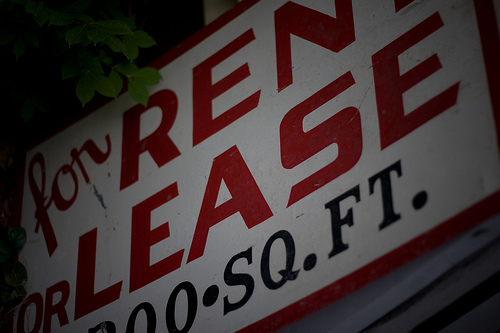May 20, 2021
Making Property Decisions as the Region Reopens
On May 14, 2021, Virginia Governor Ralph Northam lifted the indoor mask mandate in light of updated CDC guidance. Governor Northam also declared that the indoor capacity restrictions and distancing restrictions will ease, effective May 28, 2021. The District of Columbia and neighboring states are also lifting restrictions, effective around the Memorial Day weekend.
March 17, 2020
Be Safe When Property Disputes Coincide with a Public Crisis
When a public crisis occurs, pre-existing problems don’t go away. The crisis falls on top of all other burdens and conflicts of life. The Coronavirus epidemic is no different. This pandemic poses unique challenges not present in other crises. No one knows how long this will last, how many people will be affected or how far governmental restrictions will go. Some things can be deferred indefinitely without much difficulty, especially if they are only in the planning stages. If you have always wanted to put an addition on your house and planned on doing it in 2020 but haven’t bought anything, signed any contracts or other preparations, it’s easy to just put it on hold.
Other problems are not so easily deferred. For example, if a tenant is behind on her rent and the landlord wants to evict, the landlord’s mortgage payments aren’t going to be excused simply because the tenant isn’t paying, and the courts are not hearing eviction cases. Likewise, if an owner is in the middle of a major construction project requiring many people to be on the jobsite at the same time while the government is encouraging everyone to stay at home and delivery of materials are not coming on schedule, then decisions have to be made now. In this blog post, I would like to share a few thoughts about handling property-related disputes amid a public health crisis. This is not intended to replace the instructions of the authorities or other best practices to avoid getting sick. Note that these ideas may become obsolete as the situation continues to evolve. Generally, people should put health concerns first. However, sometimes there are urgencies or deadlines that must be considered.
- Availability of Court Remedies Will be Substantially Delayed. In Virginia, the District of Columbia and other places, courts are cancelling trials, postponing hearings and discouraging the sick, elderly and those with health conditions from coming. As a practical matter, while the doors of the courts may be technically open for filing, aggrieved parties may not be able to get a hearing anytime soon. When the Courts return to their regular schedule, the system will be clogged with a backlog of rescheduled hearings. Nonetheless, statutes of limitation and other deadlines may still be in effect. People should not assume that they can ignore a summons just because the governor is encouraging everyone to stay home.
- Consult with Counsel Before Exercising Self-Help. Sometimes, parties can exercise self-help legal remedies without court assistance. For example, residential landlords can’t just throw a tenant’s belongings out and change the locks just because they stop paying rent. They need a court order to direct the sheriff to transfer possession. However, on the commercial side, self-help may be an option. When adjoining owners have boundary or easement disputes, they may want to simply construct a fence in a disputed location, lock a gate across an easement or dispose of encroachments in the face of an adverse neighbor and without the blessing of the courts. However, there are potential unapparent risks of self-help, especially when the conflict has already escalated. For example, self-help can sometimes lead to threats of violence or someone calling the police. Landowners should consult with counsel to determine if some form of self-help would be helpful or risky.
- Law Enforcement and Regulators are Overwhelmed. Sometimes when disputes between adjoining owners, HOAs, contractors or landlords and tenants escalate, people may want to call the police, county departments or other regulators to protect themselves. During a public health crisis, law enforcement is already overwhelmed and may not view a neighborhood dispute with the same sense of urgency as someone living there. Code enforcement officials may be swamped with other work because of persons taking leave or other urgent matters. Unless there is an eminent threat of physical harm, theft or other crimes that cannot wait for a lawyer to respond to an inquiry, landowners ought to consider consulting with an attorney before contacting law enforcement.
- Avoid Physical Confrontations or Defects Posing Safety Threats. Sometimes neighborhood disputes escalate to the point that the parties come to fisticuffs or leave their property in a dangerous condition. Landowners should take every precaution to avoid contributing to a situation where someone gets hurt or must go to the doctor or hospital, and further burden the healthcare system.
- Avoid Homeowners Association Meetings, Hearings, and Events When Possible. The Coronavirus epidemic poses a unique threat to Americans living in condominiums and HOAs. This is because the community association form of living requires people to interact with each other to manage common concerns. The residents of associations tend to be older and at higher risk of infection. Governing instruments and state laws require “open” meetings which take place in person with the entire community free to attend, unless closed session is available. Owners are legally entitled to use common areas and facilities. Few statutes or declarations address emergency management or remote access to meetings. Many managers or directors will pursue their own agendas despite warnings from experts. Smart boards and committees will postpone nonessential meetings, prevent or discourage unnecessary gatherings and take commonsense measures to prevent common areas from becoming a venue for transmission of the virus. If an owner receives a notice of violation letter from the HOA or condominium board, she should consult with legal counsel if a postponement is not offered.
The Coronavirus has the potential to make deadlocked property disputes worse because everyone will be under greater stress, economic hardship and the legal system offers fewer immediate remedies. However, the advice of a trusted advisor such as a qualified attorney can lead to devising a self-protection strategy when the ordinary rules do not seem to apply.
February 6, 2019
Rental Restrictions in Virginia Condominiums
Teachers often compare property rights to a “bundle of sticks.” Each stick represents a discernable owner’s right such as the right to occupy, the right to use the community swimming pool, the right to live free of water intrusion, the right of access, and so on. One powerful right is the ability to rent out possession of the property. A property that cannot be conveniently rented is less useful, and therefore, less valuable.
Neighbors often view renters in a negative light. They view a community predominantly composed of owner-occupants as more vibrant than that of a community full of renters. Many view owner-occupants as wealthier, more committed to maintaining their property and more engaged in the community. Individual owners may desire the privilege of renting their own property while at the same time wanting their neighbors to be owner-occupants.
This conundrum readily manifests itself in condominium developments. High-rise condominium complexes often look and feel like rental buildings. Some investors shop for condominium units because they make great rental units during a housing shortage. However, condominium developers and managers frequently insert rental restrictions into covenants, bylaws or board-adopted regulations. While buyers and owners want the sale of their units to qualify for FHA-sponsored financing, current mortgage market conditions place pressure on the resale values for condominium units and the FHA imposes owner–occupant ratio threshold requirements for certain types of desirable financing options. For example, if the current applicable threshold is 51% owner-occupants, the current owners, as a group, will want to suppress rentals in the building to protect the resale value of their units. At the same time, those owners will individually have a personal interest in the option to rent their units if so desired. Therefore, rental restrictions in condominium governing documents are breeding grounds for conflict.
Many perceive short-term rentals as a threat to condominium communities since most condominiums are not set up to be operated as hotels or resorts. For example, a condominium concierge is not the same as a hotel receptionist, the amenities in a residential condominium differ from those found at a resort, and parking passes are often in short supply. In addition, short-term renters have a reputation for treating condominium units like hotel rooms, adding noise and traffic. To that end, it’s common for covenants or regulations of a condominium to contain provisions forbidding, discouraging or restricting the rights of owners to list and operate their units using Airbnb, HomeAway or other short-term rental websites.
Here we will discuss rental restrictions in Virginia condominiums. Every condominium association has different rental restrictions. In addition, the city or county may have separate rules (ordinances) of its own regulating short term rentals, which a short-term rental landlord must be aware of. This article focuses on where to look to find the applicable association rules and how to determine their enforceability. Frequently, rental restrictions cannot be enforced as clearly and certainly as management argues. For that reason, condominium unit owners owe it to themselves to fully understand the meaning and possible enforceability of the rental restriction rules they are bound by.
In condominium matters, one starts with the careful review of the declaration of covenants and bylaws. The condominium association is charged with administering the declaration of covenants. The Supreme Court of Virginia held that a condominium declaration is in the nature of a contract between the condominium association and the unit owners (including the unit owners among each other). One must look to Virginia law to determine how to interpret the declaration and what remedies may be available. The declaration and plats define the shape of the property rights that the owner can pass on to the tenant in a lease. The owner cannot convey rights to a tenant that the owner does not enjoy under the governing documents. Owners commonly incorporate the condominium instruments into the lease by reference to avoid situations where the tenant insists that they have a right to do something which the covenants do not allow.
The principal authority for interpreting covenants is the Virginia Condominium Act. Between 2015 and 2016, the General Assembly added provisions limiting the authority of a condominium association to restrict the rental of units. Va. Code § 55-79.87:1(A) provides a broad list of restrictions that a condominium board cannot impose unless provided for in the declaration or bylaws. Even if the amendments weren’t adopted, the Supreme Court of Virginia has held that a condominium association cannot do anything that isn’t explicitly or implicitly authorized in the governing documents. The legislature adopted this legislation during the emergence of short-term rentals. Let’s take a look at these restrictions that are permitted only if expressed in the governing documents or other parts of the Condominium Act:
- Condition or prohibit the rental of a unit to a tenant by a unit owner or make an assessment or impose a charge (except as otherwise provided by the statute). This seems helpfully broad to a unit owner challenging a board-adopted restriction.
- Charge a rental fee, application fee or other processing fee in excess of $50.00.
- Charge an annual or monthly rental fee.
- Require the unit owner to use a lease or addendum form prepared by the association.
- Charge any deposit from the unit owner or the tenant.
- Have the authority to evict the tenant or require the owner to delegate eviction power to the association. Buyers ought to be disturbed by provisions in condominium documents giving condominiums such authority.
Va. Code § 55-79.87:1(B) authorizes the association to require the unit owners to provide the names and contact information of tenants. Without such information, the association’s practical ability to enforce any rental restrictions in the covenants is limited. The authority to mandate registration is necessary to effectively regulate. This amendment made it easier to sort out what restrictions may be enforced without a deep dive into the case law.
Where the terms of restrictive covenants are clear and unambiguous, the duty of the court is to interpret them in accordance with their plain meaning. The association’s board or committee may not act in contravention of its governing documents. Unfortunately, many association governing documents are unclear, ambiguous or uncertain in meaning or effect, such that experienced judges, lawyers or professors may favor conflicting interpretations.
Attempts to use recorded covenants to restrict rental rights predates the rise of short-term rental websites. In Scott v. Walker, the Supreme Court of Virginia considered case precedents in deciding whether an HOA covenant requiring real property be used only for “residential purposes” would prohibit short term rental of a single-family dwelling. The Supreme Court of Virginia found the covenant ambiguous and for that reason construed it in favor of free use of land.
William Scott and Suzanna Scott owned a lot in the Harbor Village HOA on Smith Mountain Lake. Their lot was located near Roanoke. After purchase, the Scotts began to use their property as a short-term rental. Donald and Charlotte Walker, their neighbors, were unhappy about the Scotts’ short-term renting. They sued the Scotts. The Circuit Court of Bedford County found that rental on a nightly or weekly basis is not “residential” because the property is not being used as a domicile. Understanding the Circuit Court’s view is not difficult. A hotel or bed and breakfast is a business, not a collection of homes. If a hotel guest doesn’t pay, then the hotel probably won’t need to file an eviction lawsuit.
The Supreme Court of Virginia construed the covenant according to the plain meaning rule and the rule that errs on the side of free use when there is doubt or ambiguity.
It is . . . the general rule that while courts of equity will enforce restrictive covenants where the intention of the parties is clear, and the restrictions are reasonable, they are not favored, and the burden is on him who would enforce such covenants to establish that the activity objected to is within their terms. They are to be construed most strictly against the grantor and persons seeking to enforce them, and substantial doubt or ambiguity is to be resolved in favor of the free use of property and against restrictions.
Scott v. Walker, 274 Va. 209 (2007).
Given the limitations imposed by the Condominium Act and the series of decisions by the Supreme Court of Virginia, condominium unit owners owe it to themselves to not take their board or manager’s word for it when they waive a board-enacted “Policy Resolution” regarding the rental of units. The rules may not be enforceable or may not be enforceable in the manner that the board of directors wants. The right to rent out a condominium unit may determine whether the owner can keep the property. The Supreme Court of Virginia’s method of interpreting ambiguous covenants in favor of free use is something that any attorney dealing with rental restrictions in Virginia condominiums must fully understand.
Discussed Authorities:
Sully Station II Community Ass’n v. Dye, 259 Va. 282 (2000).
Va. Code § 55-79.87:1 (Condominium Act – Rental of Units).
Scott v. Walker, 274 Va. 209 (2007).
photo credit: sjrankin Unsettled Weather via photopin (license)
May 16, 2017
Breach of Agreement to Purchase Insurance
Many construction contracts contain provisions requiring one or more parties to purchase insurance to cover certain activities or property related to the project. These provisions put an affirmative duty on a party to go out and obtain insurance to protect themselves, the other party in the contract or for against third party claims. Given the potential for expensive property damage claims or even personal injury, it makes sense for the parties to consider insurance provisions. This can be a great way of protecting against the risks of loss and litigation. If there is damage or loss and it is covered by a policy, this “Plan B” works. But what if in the event of loss the party that agreed in the contract to purchase insurance failed to do so? Is there a “Plan C?” Can they sue for breach of agreement to purchase insurance? In Virginia, the courts often deem the party who failed to fulfill their obligations to purchase insurance responsible for the loss. This seems obvious, but in cases where the opponent also breached the contract, it may not be clear how to sort out the liabilities. Whether an owner, contractor or subcontractor is what lawyers and judges call a “constructive insurer” by failure to buy insurance turns on the specific language in the agreement.
The leading Supreme Court of Virginia case on this is the 1983 decision, Walker v. Vanderpool. Roland and Elizabeth Walker owned a home in Virginia, southwest of Richmond. In 1977, they retained Vanderpool Heating & Air Conditioning Service for purchase and installation of an oil-burning furnace for $2,305. The contract said, “All work to be completed in a workmanlike manner according to standard practices.” The terms also required the Walkers to acquire and maintain fire insurance on the house. After completion, the furnace caught fire and the house burned. The Walkers had not purchased fire insurance. The Walkers alleged that their home burned because Vanderpool negligently connected the new oil furnace to a “non-existent chimney” and then turned it on. The Walkers sued Vanderpool for $45,000.00 in damages.
Vanderpool argued that if a person enters into an agreement to obtain insurance and neglects to fulfil this obligation, that person becomes the insurer and is potentially liable as such to the other party to the contract. The Walkers responded that the insurance provisions do not properly work to protect Vanderpool from liability for their own negligence.
The Supreme Court of Virginia took a “freedom of contract” approach on this case, observing that the Walkers were free to reject the Vanderpool contract unless the insurance provision was removed or modified. The Court agreed with Vanderpool that by their failure to procure the insurance, the Walkers became self-insured on this risk, and could not come after Vanderpool.
It’s easy to see how these parties looked at the contract and saw in it what they wanted. Vanderpool liked the insurance provisions, and the Walkers liked the scope and standard of workmanship provisions. In general, courts will try to harmonize different provisions in a contract so that no sections are effectively removed or rewritten in the judge’s decision.
Owners and contractors often do not focus on the insurance provisions in a contract until after something unfortunate happens. It pays to understand any contract before signing it.
Sometimes a party who fails to purchase required insurance for a project has no means to pay on a claim. A contractor may have no assets except a few pieces of equipment. An owner may have spent all of their extra cash on the project. It is important to obtain certificates of insurance to confirm that there is coverage in place.
These insurance provisions are found in a variety of other real estate related agreements, such as lease agreements, condominium or HOA covenants or mortgage documents. Newer HOA and condominium covenants seek to shift risks off the board and onto individual owners in sections dealing with liability, indemnification and insurance. Sometimes state statutes will impose insurance requirements. For example, in the District of Columbia, the Condominium Act requires owners and the association to purchase insurance. To understand insurance obligations for an owner in a HOA or condominium, it is necessary to also check what statutes, if any may apply should a dispute arise. Owners and contractors usually need the assistance of a qualified attorney to answer questions raised by mumbo jumbo in real estate and construction documents. Individual persons can often protect themselves by purchasing insurance. Being fully insured can save property owners from potential costs, including repairs and related attorney’s fees.
Case Citation:
Walker v. Vanderpool, 225 Va. 266 (1983)
Photo Credit:
August 15, 2016
Escaping an Unlivable Rental Property
Americans continue to feel the effects of the recession that began in 2008. In April 2016, the Wall Street Journal reported that U.S. home ownership rates dropped to 63.5%, near the 48 year low of 63.4% experienced in 2015. Meanwhile more families are renting homes. Washington, D.C.’s local economy is more resistant to recession because of the federal government. In past years, the rental real estate market in Northern Virginia exploded. Many workers with decent wages found themselves renting because of challenges in saving up for a security deposit. Many single family homes available for rent are owned by landlords who live out-of-town. Frequently, tenants find themselves committed to written lease contracts for properties that are practically uninhabitable. Sometimes this happens because the tenants signed leases after viewing photos on the internet without an in-person inspection. In other situations, the tenants discover serious problems with the condition of the property only after living there a while. Not all habitability problems are immediately apparent upon an in-person visual inspection. Such problems can include insect or rodent infestation, contaminated water, broken furnaces, asbestos exposure, serious water intrusion, toxic mold, lead exposure or any other condition that threatens the health or safety of any occupant. Escaping an unlivable rental property has its own challenges. Tenants find themselves financially responsible for use of property that is not habitable. Adding to this, tenants must make a new financial commitment to another property if they want to move. The current landlord keeps additional leverage by holding the security deposit.
Typically, the landlord, her agent or attorney prepare the residential lease agreement. By design, that lease seeks to manage the risks of a damaging or non-paying tenant. Landlords look at their ownership responsibilities in terms of mortgages, taxes, insurance, agent’s commissions, association dues, you name it. Leases have more provisions about the tenants’ obligations than those owed by the landlord. When dealing with unlivable conditions, a tenant must consider legal protections outside the four corners of the lease agreement.
In Virginia, the chief consumer protections for tenants are found in the Virginia Residential Landlord Tenant Act. This statute applies to many landlord-tenant relationships in the Commonwealth. Also, the Virginia General Assembly enshrines the landlord’s obligations in a statute entitled “Landlord to maintain dwelling unit,” Va. Code § 55-225.3(A) requires the landlord to:
- Comply with the requirements of applicable building and housing codes materially affecting health and safety;
- Make all repairs and do whatever is necessary to put and keep the premises in a fit and habitable condition;
- Maintain in good and safe working order and condition all electrical, plumbing, sanitary, heating, ventilating, air-conditioning and other facilities and appliances, including elevators, supplied or required to be supplied by him;
- Supply running water and reasonable amounts of hot water at all times and reasonable air conditioning if provided and heat in season except where the dwelling unit is so constructed that heat, air conditioning or hot water is generated by an installation within the exclusive control of the tenant or supplied by a direct public utility connection; and
- Maintain the premises in such a condition as to prevent the accumulation of moisture and the growth of mold and to promptly respond to any notices as provided in subdivision A 8 of § 55-225.4.
Tenants intuitively know that they are entitled to these basic protections. How are they to get out of bad situations without bearing an unfair burden for problems which are someone else’s responsibility. Litigation should only be pursued if unavoidable. Many problems with the condition of property might require proof by testimony of an expert witness. The parties might have to wait several weeks for their first court date, and then weeks or months more for trial.
If a condition with the property is currently unbearable, the landlord can expect a prospective buyer or new tenant to have the same visceral reaction. If repairs or remediation are required, the landlord will have to pay for that while paying other obligations. The property could go for weeks or even months where the tenant rightfully doesn’t want to pay, but the landlord doesn’t want to release the tenants from their obligations. In a residential case, the parties should expect a judge to oppose giving damages for rents where the landlord could mitigate his damages by making the property livable and renting it out to a new tenant.
Under most lease agreements, timing issues are critical to tenants preserving their rights to get their deposits back. Landlords can try to enforce provisions requiring for advance notice harshly.
If the landlord refuses to let them go amicably, the tenants should prepare to go to Court if necessary to protect their rights. At the same time, where at all possible a reasonable settlement should be pursued. Depending upon how severe the problems are with the condition of the property and how the statutes and lease provisions speak to the problem, the tenants can usually negotiate an exit strategy that doesn’t require them to finance the landlord’s efforts to market or refurbish the premises. Landlords, their property managers, and attorneys will look to see if the tenants are serious in their desire to get out of an unacceptable situation while protecting their rights. Tenants have rights not to unfairly bear the financial and lifestyle burdens of landlords’ problems. Contract qualified legal counsel to protect your interests.
UPDATE:
I would like to share an emailed comment on this article from Deborah Goonan, property rights blogger & activist:
It certainly seems to me that a tenant has more legal protection than an owner of a condo or HOA. There is no specific obligation for an Association to provide maintenance up to a habitable standard — at least not spelled out to the degree that landlord/tenant law spells out in Virginia law.
And at least the tenant can leave (theoretically — depends on the tenant’s financial situation and if there’s anywhere else for the tenant to go), and loses, at most, the security deposit.
A condo owner has a LOT more financial risk and cannot easily walk away from obligation to pay assessments and mortgage payment for a place that is not livable. (Such as Michelle Germano with the toxic drywall).
Deborah
Photo Credit: 20-22 Surry Rd: Our 2 family house via photopin (license)
December 10, 2015
San Bernardino Landlord Holds Controversial Open House
Was the California landlord to the terrorist couple entitled to open up the rental property to the news media? Internet videos show a frenzied swarm of camera crews exploring every cabinet and closet. So what if the San Bernardino landlord holds controversial open house? Commentators raised questions about preservation of evidence in the criminal investigation. There is also an ethics-in-journalism element. Given the heinousness of the crimes and public interest in foiling future attacks, it’s easy to overlook the landlord-tenant legal issues raised when tenants use a rental for criminal purposes and some die before termination of the lease. This story is of interest to any landlord with elderly tenants or who rents in a community with a crime problem.
According to law enforcement, Syed Farook and Tashfeen Malik used the garage of the Redlands, California townhouse they rented as a homemade explosive device factory. They used their residence as a base for their December 2nd attack on the Inland Regional Center that tragically left over 14 people dead and many more wounded. The victims and their families deserve our continued concerns and prayers, especially as public attention shifts elsewhere. As a new father, I cannot fathom Farook and Malik’s decision to drop off their six-month-old daughter with a relative and then commit such a deplorable attack. While Malik’s pledge of allegiance to the Islamic State of Iraq and Syria makes motive discernment easier, this blog post is about landlord-tenant law and not the politics-and-religion issues discussed thoroughly elsewhere. The deceased attackers were not the only residents of the property. Farook’s mother and the couple’s six month old baby also lived there. Law enforcement searched the premises and removed certain items of interest. According to news reports, they turned it back over to landlords Doyle & Judy Miller. On Friday, December 4, 2015, Doyle Miller held an informal press conference on the lawn of the townhouse. After the interview he opened up the house and permitted the news media and their cameras to search the house except for the garage.
Given the law enforcement’s interest in further investigations, the landlord’s interest in preventing additional notoriety to the property, the grandmother’s possessory interest in the place and the child’s unique vulnerability as a resident, heir, and orphan, it is shocking that the media obtained free access with their film crews. The reporters likely put their fingerprints all over the townhouse, moved items around, and possibly removed or destroyed parts of the townhouse or the occupants’ belongings. In fact, MSNBC later publicly apologized for broadcasting some photos and identification cards of some occupants. One can imagine the intense pressure the identification of the killers’ home must have placed on the Millers. They needed to cooperate with law enforcement. After the police search, the news media must have inquired about the inside of the house. The deceased’s shocking crimes do not conjure sympathy. One would not expect the grandmother and grandchild to ever live there again. It may have appeared easier to simply let the media swarm inside the house than to face their constant inquiries.
The Millers may have been concerned that refusal to cooperate with the media might lead to further questions about landlordly knowledge of the activities at the house. In an informal press conference held at the property, Doyle Miller stated that his tenants always paid their rent on time. The renters called a few times requesting landlord repairs. During his visits he never saw any guns or bombs. When asked if he ever went into the garage where law enforcement found evidence of pipe bomb manufacturing, he stated that once he went in there but he only saw some people repairing a car.
Good landlords check to make sure that prospective renters can pay their rent and won’t cause other problems. During the rental period, many obligations to maintain the property fall on the landlord. Most lease agreements provide for landlords to inspect the property for damage by the tenant or other causes during the rental period. Homemade bomb manufacturing is not just illegal. It is an ultra-hazardous activity involving explosive devices that can be easily set off. No landlord wants that in their townhouse no matter how timely the rent payments are.
Sometimes tenants engage in narcotics trade or other illegal activities. Tenants can be incarcerated or die. These are events that can lead to the termination of a tenancy. However, such events don’t necessarily cause the other occupants or the estate of the deceased to lose all of their rights in the premises or their belongings. In Virginia, like many places, a landlord cannot evict a residential tenant’s family without going through the courts. Hosting a media circus seems like a troublingly broad extension of a landlord’s right of inspection. Our legal system has many procedures in place to protect people from infringement of their rights to be secure in their own homes. News reports do not suggest that the townhouse or its contents were abandoned by the grandmother, infant, or the estate of the deceased. While the Millers must have been under a lot of pressure, it is not clear why they didn’t use California’s landlord-tenant laws and the provisions of the lease agreement to deal with the personal property and retake possession of the premises. The attorney’s fees would be a small price to pay for the value of the legal protection. Perhaps some of my readers may have some insights.
Landlords should not discriminate against prospective or current tenants based on their religion or national origin out of fear of renting to terrorists. I am not aware of any exception to anti-discrimination laws for instances where landlords associate a national origin or religion with types of illegal conduct. I’m wondering if any state legislatures will amend landlord-tenant, community associations, or mortgage statutes to give landlords, HOA’s, or lenders expanded legal privileges or duties to prevent homes from being used for terrorism. I’m concerned that homeowners’ rights are already under assault from different directions and such legislation would have unintended consequences.
Given the desire of the Farook family for privacy, I’m not sure if any legal claims will be brought against the Millers for hosting the media “open house.” The family may decide that any damages from loss of use of the townhouse or ownership of personal items is not worth the loss of privacy from media attention surrounding such a suit. However, given the high profile of this media event, the public may draw an incorrect inference that the Miller’s actions are advisable or without substantial risk. This is significant because home ownership is on the decline and renting is the trend. Many working people are unable to save a down payment necessary to purchase a home. In the event that tenants use a rental for illegal purposes and/or die before the leasehold is terminated, a landlord should consult with a qualified attorney before taking possession of the property. If occupants of rental properties are displaced by the criminal conduct of other tenants, they should also seek counseling to protect their rights.
Further Reading:
Rick Rojas, “Landlord Lets Reporters Into San Bernardino Suspects’ Home,” Dec. 4, 2015, NYTimes.com
Paul Janensch, “Was going through shooters’ home live appropriate?” Dec. 9, 2015, TCPalm.com
Photo Credit:
July 11, 2014
The California Nanny and Mediating Legal Disputes Through the Media
Marcella and Ralph Bracamonte brought Diane Stretton into their Upland, California home to provide childcare services in exchange for room and board. Ms. Stretton and the Bracamontes got into a dispute over their arrangement. Ms. Stretton stopped working and refuses to move out. Why is this story national news? The answer illustrates some pitfalls of mediating legal disputes through the media. Parties are better off resolving seemingly intractable disputes through judges, qualified mediators and experienced attorneys.
Every day, disputes arise over the treatment, performance and compensation of employees. Most states have employment commissions to alleviate stress on the court system. Disputes over how soon a landlord is entitled to have a non-paying tenant depart are also commonplace. Many courts even have special hearing days for evictions. Diane Stretton has been dubbed the “Nanny from Hell,” “Nightmare Nanny” or “Won’t Go Nanny.” Why has her story captured our attention?
In March 2014, the Bracamontes family hired Ms. Stretton off CraigsList to be a live-in nanny for their three children. Over the next three months, the relationship deteriorated. According to the Bracamontes, Stretton stopped working and continued to occupy the premises after they fired her on June 6th. See Jul. 8, 2014, J. Hayward, “Nanny from Hell and the Squatter Ethos.”
Ms. Stretton maintains that as the weeks progressed, Marcella Bracamonte demanded additional tasks of her far beyond their original arrangement. When someone isn’t getting paid their wages and doesn’t like the work, usually they simply quit and go home. For Stretton, the workplace was home. Ms. Stretton stayed despite the couple’s demands. On June 25th, they served her with legal notice in the living room of the residence.
No Self-Help Eviction. In California, like Virginia, once someone makes a property their residence and declines to leave voluntarily, the owner cannot evict them without going to court. Each state has a different housing code. Some are more friendly to landlords, others favor tenants. The common principle is that in the event of a dispute, the resident cannot be booted out without legal action. All of us sleep better at night knowing that we have a right to due process before a mortgage lender or landlord attempts to remove us from our home.
Boundaries are Good. Both the Bracamontes and Stretton voluntarily entered into this living & working arrangement as strangers without establishing significant boundaries. The Bracamontes not only consented to have Stretton care for their children, they also agreed to allow her to live with the family. On the level of human intimacy, this high on the trust scale.
Stretton is also vulnerable. She isn’t being paid a salary and relied on her “host” family for food, water, shelter, etc., in exchange for her labors. Tom Scocca of Gawker sees an element of exploitation on the part of the Bracamontes, characterizing them as seeking a live-in nanny while ignoring California’s wage & hour laws. After the situation deteriorated, they went to the media, complaining that their unpaid servant will neither work nor leave. Jul. 3, 2014, T. Scocca, “The ‘Nanny from Hell’ is an American Hero.”
A written lease agreement sets out the remedies available to the parties in the event of a default of specific obligations such as paying rent. However, the document performs another role. Even if the parties had entered into a thorough legal contract, Stretton still would be entitled to have her case heard by a judge, a process that could take several weeks or months, depending on the jurisdiction. Experienced landlords and employers know that a written agreement does not guarantee that the tenant or employee will perform according to that document. A written lease agreement is a legal instrument, but it is also an opportunity to define boundaries of human relationships at the time they form. For the Bracamontes and Stretton, those dynamics stretch both professional and personal boundaries. If the lease and employment agreement negotiation process had been conducted properly, this whole situation may have been avoided in the first place.
Counterproductive Media Attention. According to a July 9, 2014 People.com article, Stretton’s belongings still remain at the Bracamonte’s house. Although she is no longer sleeping there, she has declined to move out until conditions are met. She is unhappy that the news media is camped out around the Bracamonte house. To move she would have to run gauntlet of cameras and microphones in the hot sun. Some reports indicate that she suffers from health complications. As I mentioned earlier, eviction and employment termination disputes are common. News outlets don’t normally monitor them. Did the family or the nanny instigate the media attention to their case? The Bracamontes are no longer making appearances with CBS2 because the family now has an Exclusivity Agreement with another media network. Jul. 9, 2014, CBS2, “Controversial Nanny Tells Her Version of Events.” In the other ring of the circus, Stretton provided a “mountain of paperwork” to People magazine supporting her position. If the Bracamontes had simply gone to court like other landlords reaching an impasse, perhaps Stretton would have left of her own accord by now. Perhaps they fear a counterclaim. The parties decisions to interact with each other through the media has escalated the conflict in a mutually detrimental way. The media presence must have an effect beyond deterring the nanny’s move. I imagine news trucks interfere with day-to-day family life.
I hope for the sake of those three kids, Ms. Stretton gets a reasonable opportunity to remove her belongings from her room. Once the TV trucks leave, the adults can resolve their monetary claims. Bracamonte v. Stretton illustrates the risks of presenting a legal dispute to the news or social media rather than in court or at the settlement table.
photo credit: fredcamino via photopin cc
April 10, 2014
Landlord Strategies for Avoiding Security Deposit Disputes
The departure of a tenant leaves the landlord with long to-do list, including listing the property for rent, evaluating applicants, repairing or remodeling the property and preparing a new lease agreement. Wrapping-up the relationship with the previous tenant can inadvertently fall to the bottom of the list of priorities. A lawsuit over the prior tenant’s security deposit can create a big distraction to the landlord after the old tenant leaves and the new one moves in. Proving damages can be a time intensive activity. Fortunately, many of these disputes are avoidable. This blog post explores seven strategies landlords may employ to avoid tenant security deposit disputes.
1. Use a Lease Appropriate to the Jurisdiction and the Property:
In urban areas of Virginia, landlords leasing out 4 or more properties must follow the Virginia Residential Landlord & Tenant Act (“VRLTA”). Similarly, District of Columbia landlords must follow the D.C. Housing Code. These sets of rules contain different provisions regarding what terms a landlord may put in a lease. They also show how the courts would interpret the lease. If the property is a condominium unit, the community will have rules and regulations governing leases in the development. Confusion is fertile grounds for conflict. Wise landlords use lease agreements adapted to their jurisdiction’s laws and the property unique situation.
2. Calculate Realtor Commissions and Routine Repairs into the Rent:
When the tenant moves out, the landlord may need a realtor to promptly market the property to a good replacement tenant. The realtor will require a commission on the rental. Even with fastidious tenants, features of the property will wear out with the passage of time. Most landlords want the property to “pay for itself” out of funds from tenants. During a transition, the previous tenant’s security deposit appears as low-hanging fruit. However, the landlord’s interests are best served by having the property pay for these expenses over the term of the lease out of ordinary rent. Landlords should account for more than mortgage payments, insurance, association fees and real estate taxes in the rent. The decision to rent the property requires a full cost analysis in addition to review of what the market will bear. The security deposit is for damage that exceeds ordinary wear over the period of the tenancy.
3. Conduct an Inspection of the Property Prior to the Tenant’s Move-In:
If the landlord and tenant end up litigating over the security deposit, the Court will hear evidence of the difference in the condition of the property between the move-in and the move-out. Whenever a property is in transition or dispute, a thorough, documented inspection is invaluable. I have previously blogged about property inspections in my “Navigating the Walk Through” post series. Before the tenant moves in, the landlord should conduct an inspection, take photos and provide a simple report to the tenant. The VRLTA requires the landlord to provide the tenant with a move-in inspection report. This can save the landlord tremendous time later on.
4. Provide the Tenant Notice and Inspect the Property Again at the End:
Both the VRLTA and the D.C. Housing Code require landlords to provide tenants notice of the final inspection. The close-out inspection should be conducted within three days of when the tenant returns possession. This requires the landlord and his agent to focus on the departing tenant, new renter, realtors and contractors simultaneously. Some inexperienced landlords put off focusing on the previous tenant’s security deposit until after any renovations are done and the new tenant is in. Savvy landlords recognize the significance of the condition of the premises at the time the previous tenant departs. After the property has been renovated and the new tenant has moved in, the condition of the property cannot be documented post-hoc.
5. Retain and Store Damaged Fixtures Replaced Between Tenants:
When contractors replace fixtures in a rental property, usually they throw the replaced ones away to clean the job site. If the landlord intends to deduct those damaged fixture from the security deposit for damaged fixtures, he should consider retaining them as real evidence. Some damages don’t photograph well. If the tenant later complains about the deduction, the landlord can then offer to let the tenant inspect the physical items. A tenant will think twice about filing suit knowing that the landlord will bring the disputed fixtures to court. Few landlords do this. Even if they tell the contractor, the manager may not remind the employees accustomed to cleaning up the site. This requires extra attention to detail, but may be convenient to some landlords. Some bulky or fragile items may not be suitable as trial exhibits.
6. Provide an Itemized List of Deductions Supported by the Inspection:
Under the VRLTA and the D.C. Housing Code, the landlord has 45 days to provide the tenant with the security deposit refund and the written list of deductions. If the tenant disputes the list, the landlord may desire to later add additional items not included on the list to aggressively respond to the lawsuit. However, the Court may deem any items not listed as waived. The deductions included on the list should be those supported by the final inspection documentation. Note that the landlord cannot deduct for ordinary wear and tear. The definition of “ordinary wear and tear” is flexible. I like to understand it as normal depreciation over the life of the item’s normal use. If any refund is made, the tenant may be entitled to interest.
7. Provide Strong Customer Service:
Whether a landlord is renting out a room to a summer intern or leasing a single family home for a year to a large family, he owes it to himself (and the tenants) to manage the property like a business, including a commitment to strong customer service. A happy tenant can save a landlord a realtor’s commission by referring a new tenant. Where the realtor may also get referrals by establishing rapport with the departing tenant.
Can you think of any other strategies for landlords to prevent or resolve legal disputes with departing tenants?
photo credit: Jem Yoshioka via photopin cc
April 3, 2014
Commercial Leasing: New Developments in Acceleration of Rents
How much unpaid rent can a landlord of a commercial property collect against a tenant who has fallen into default? Arlington attorney John G. Kelly explored this issue in his blog post, Acceleration of Rents: Part 1, How to Ensure It’s Enforceable? Acceleration of Rents provisions typically give the landlord the right, after default by the tenant, to demand the entire balance of the unpaid rent under the lease paid in one lump sum. Without such a term, a Virginia landlord is only entitled to possession of the premises or to collect each rent payment as they become due. The landlord has no duty to mitigate his damages by re-letting the premises unless such is required by the terms of the lease. Kelly’s post shows that although this is a significant issue, there haven’t been many Virginia case opinions guiding landlords, tenants and their advisors. Kelly discusses a 1996 Virginia Circuit Court opinion that acceleration of rents provisions are enforceable unless they constitute a “penalty.” This reflects a concern that a landlord may be unjustly enriched if it receives accelerated rents under the defaulted lease and rents from a new tenant for the same premises. In the country there is an expression, “Pigs get fat, hogs get slaughtered.” As we will see, this principle may carry weight even when there is no affirmative duty to mitigate damages.
In September 2013, a new federal court opinion illustrated how acceleration of rents provisions may be enforced against tenants. A Federal Judge sitting in Lynchburg, Virginia awarded accelerated rents as damages arising from default of a lease of a nursing home property. Landlord Elderberry owned a 90-bed nursing facility in Weber City in Southwest Virginia. Elderberry rented it to ContiniumCare of Weber City, LLC to operate the nursing home. Continium continued to pay rent until March 2012. Three months later, the Virginia Department of Health & Human Services terminated the nursing home’s Medicaid Provider Agreement. Elderberry terminated the lease by letter in August 2012. Continium then vacated the premises. The property required substantial repairs and renovations for further use as a Medicaid facility. In January 2013, Elderberry re-let the premises to Nova, a new nursing home tenant.
The parties litigated this case heavily through extensive motions practice, discovery and a multi-day trial. Today’s blog post focuses on the Court’s interpretation of the acceleration clause provisions in the nursing home lease. The tenant asserted that the acceleration of rent provision was not enforceable because it constituted an impermissible “penalty” above and beyond fair compensation for actual damages.
Elderberry did not have a legal obligation to mitigate its damages. The landlord nonetheless gave the tenant credit for rents already collected from the new tenant and scheduled to be paid in the future for the term of the prior tenant’s lease. In addition to other damages, the Federal District Court awarded Elderberry $278,228.58 in unpaid rent up until the replacement tenant began paying rent and $125,857.04 in shortfall between the two leases. The court observed that the landlord’s efforts to invest its own funds into repairing and remodeling the premises mitigated tenants’ damages and returned it to functional use to Medicaid patients faster.
To secure a new lease, the landlord provided to the new tenant $588,708.60 in working capital above and beyond renovations and replacement furnishings invested in the premises by Elderberry. The defaulting tenants complained that Elderberry would receive a windfall if awarded both this working capital and the rent shortfalls. The Court observed that the landlord is entitled to rent increases under the new lease based on the amount of working capital provided. However, the shortfall is adjusted accordingly to prevent any windfall. The Court found the working capital to be a necessary incentive to a new tenant to take over the space and begin making rent payments mitigating the damages.
Retail leasing attorney Ira Meislik observes in his blog that the modern trend is for courts to interpret leases less like land conveyances and increasingly like commercial contracts. See his 2012 post, How Much Can a Landlord Collect from an Evicted Tenant? Elderberry illustrates how even in “land conveyance” states like Virginia, reasonable efforts to mitigate damages can facilitate the collection of the balance of accelerated rents. Avoiding unnecessary windfalls is a principle that underlies both mitigation of damages and the prohibition against penalty provisions in leases. In this case, the landlord re-let the premises before trial but after filing suit against the tenants. Like in many cases, the facts continued to develop after the lawsuit began. By adjusting their trial strategy to give a re-letting credit, Elderberry avoided asking for damages that tenants could easily argue were a windfall and hence a penalty. It is not clear whether Elderberry will actually collect all or even some of this judgment, but they did avoid getting “slaughtered” at trial.
The Defendants appealed the Western District of Virginia’s award of damages, and as of this blog post the Elderberry case is now on appeal before the U.S. Court of Appeals for the Fourth Circuit.
photo credit: pcopros via photopin cc (photo of a Lodge in Scott County, Virginia [same county where Weber City is situated]. Does not depict premises discussed in blog post)
January 2, 2014
Can My Landlord Evict My Business Without Going to Court First? – Part II – Complications to Landlord Self-Help
In Virginia, landlords have a right to evict commercial tenants without going to Court first. This does not make it likely or wise. Even in jurisdictions where self-help is legal, it is unusual to see landlords piling up their tenants’ business property on the curb. There are several reasons why:
1. Lease Terms: Any self-help must comply with the terms of the lease agreement. The laws of Virginia and its neighbors vary regarding a landlord’s remedies upon the tenant’s default. Many commercial leases are forms adapted from use in other jurisdictions. These forms may be a challenge to interpret under Virginia law. Even terms drafted with an eye to the law of the jurisdiction may not contemplate the exercise of the self-help remedies desired by the landlord’s agents. The terms of some lease agreements eliminate the right of self-help eviction entirely. Many other leases do not clearly define the landlord’s rights to exercise self-help. When parties negotiate the lease agreement, tenants typically request that any detailed landlord self-help eviction terms be edited out. The landlord often finds himself reserving, in a general way, its common law remedies, including self-help, without defining how they may be exercised. When the issue comes up upon default, both parties experience uncertainty regarding how a court would view the landlord’s threatened action.
2. Possibility of Property Damage: The landlord may be averse to taking possession of the property in a way that may damage the tenant’s property or involve physical confrontation with the tenant’s personnel. The landlord may desire an award or settlement for the balance of the lease. Property damage counterclaims complicate collection efforts.
3. Forcible Entry Claims: In certain situations landlords and tenants may be punished criminally under forcible entry, detainer or trespass for aggressive action taken with respect to the premises and business property in dispute.
4. Bankruptcy Stay: If the tenant is in bankruptcy, then an automatic stay likely prohibits self-help. The dispute between the landlord and the debtor-tenant over rights to possess the space is addressed in federal bankruptcy court.
5. Sublease: The landlord-tenant relationship may be complicated by a subletting arrangement. A sub-landlord and the master-landlord may disagree regarding their respective rights to possess the sub-leasehold. Disagreements between the property manager and the sub-landlord may delay action.
6. Institutional Landlords: The organizational structure of the landlord may play a role. When the same individual is the owner and property manager of the building, that person will likely exercise broader discretion than in a more institutional context.
These issues do not necessarily preclude the use of self-help. A risk-adverse landlord may view going to court to gain possession as a desirable alternative.
What should a tenant do if the landlord is threatening to take possession prior to going to court? The simplest options are to (a) avoid falling into default or (b) plan a move-out in advance if a default appears imminent. In certain situations, the circumstances of the business or relationship with the landlord may be too complex or attenuated for that. The tenant may have business operations or valuable property to protect. In any case, careful consideration of the lease terms and cogent communication with the landlord are essential. Where property and income are at stake, potential risks associated with changing locks and removing property are too great for either side to view landlord self-help as the logical first step towards resolving a dispute. In these situations, a tenant is best served by interacting with the landlord through experienced brokers and lawyers.
photo credit: vasilennka via photopin cc
December 31, 2013
Can My Landlord Evict My Business Without Going to Court First? – Part I
Part I – Landlord Self Help in Virginia
Suppose a company leases commercial property to run its business. Due to economic conditions, the tenant struggles to pay rent. The landlord has declared the tenant in default, or is threatening to do so. One of the remedies asserted by the landlord is “self-help” such as changing the locks and removing the business’ property from the premises. Can the landlord do that? What strategies and considerations are available to the tenant in such a situation?
When a tenant of a commercial property falls into default under the lease, or such default is imminent, knowing what options the landlord has moving forward is essential. The tenant making present use of the leased premises needs to know the landlord’s potential legal remedies so it can craft its own plan for the immediate future and to provide a framework for negotiations. In Virginia, and other jurisdictions where landlord self-help is permitted, threats such as changing the locks or otherwise barring the tenant from re-entry, removal of the property from the premises and placing it elsewhere may be the most urgent concern to a struggling commercial tenant. Understanding the respective rights of the landlord and tenant are crucial to planning continuity of business operations and safeguarding company property.
In Virginia, a landlord in a residential lease has no right of self-help eviction. However, the right of self-help remains an option for non-residential leaseholds. The commercial landlord is limited to using reasonable force in taking possession of the property upon default. The landlord may not “Breach the Peace” in taking possession. In other words, confrontation threatening physical harm is not permitted. Self-help may be attractive to the landlord in order to make an urgent transition to a new tenant without having to go to Court, take the case to trial and have the sheriff come out to the property.
While the remedy of self-help is legal in Virginia in non-residential matters, there are several considerations that make landlords reluctant to pursue it. In Part II, I will discuss several reasons why landlords usually avoid trying self-help eviction.











